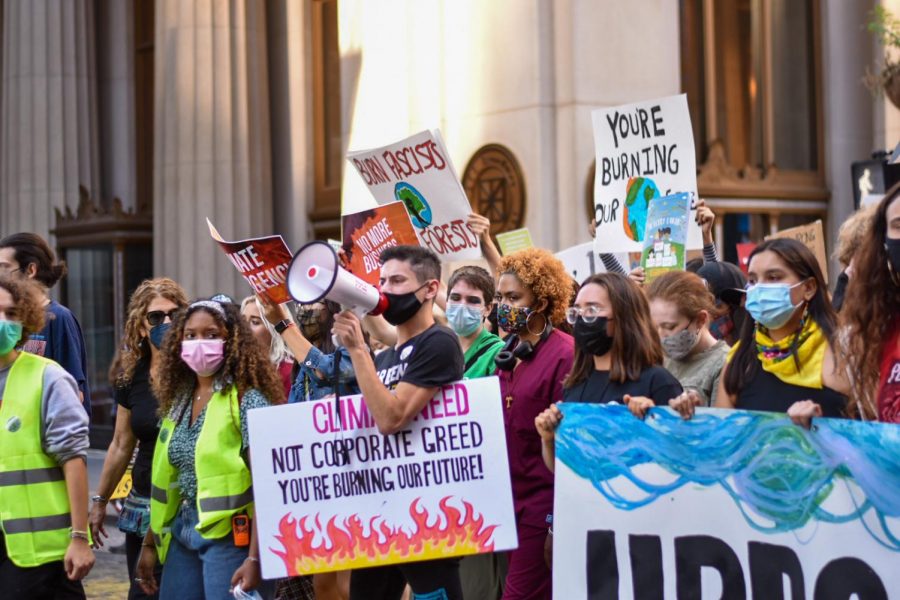Opinion: The UN is taking substantial action against climate change
Despite climate defeatism and cynicism surrounding the U.N., the organization is making a difference in the fight for a greener future.
The UN has done more than most realize to curb the effects of climate change. The organization is set to commence the Climate Change Conference on Oct. 31. (Photo by Camila Ceballos)
October 25, 2021
As the United Nations prepares for this year’s Climate Change Conference, starting on Oct. 31 in the United Kingdom, the efficacy of past efforts regarding climate change reduction and prevention is being questioned — especially by youth activists such as Greta Thunberg. Although Thunberg says that institutions and people in power are doing “blah blah blah” to stop climate change, however, the United Nations is in fact doing its part to curb emissions.
Through the Montreal Protocol, the United Nations organized a ban on chlorofluorocarbons — chemicals that damaged the ozone layer and exposed millions to the harmful effects of UV radiation — among all its member nation-states. In the mid-1980s, it was predicted that CFCs would eliminate the ozone layer in just a few decades. Thanks to the Montreal Protocol, the ozone layer is on track to be fully restored, and some scientists claim that it is already fully restored. It’s estimated that since the protocol was passed unanimously by all member states, about two million people have been saved from skin cancer. The United Nations is proof that institutions can organize to create material change.
The Intergovernmental Panel on Climate Change is chartered by the United Nations and has produced six significant reports about climate change in relation to economics, the environment, politics and more. Its last report was published on Aug. 9. These reports are helpful to companies and governments that base policies and actions on scientific knowledge. Through the IPCC’s recent report, the United Nations characterized the state of climate change as “code red.” U.N. Secretary-General António Guterres also urged all nations to reach a carbon neutral status by 2050 in order to prevent temperatures from rising globally by 1.5 degrees Celsius — essential to averting climate catastrophe.
One of the most legally binding strategies the United Nations organized to prevent climate change is the Paris Agreement. It is also organizing its upcoming COP26 conference in October and November to ensure that the Paris Agreement is actually implemented. The agreement faced major setbacks when the United States backed out under the Trump administration in 2019. Events such as COP26 demonstrate the United Nations’ effort to push countries into enacting action against climate change in a diplomatic way. This change can be seen in how major polluters such as Russia — perhaps under pressure with the COP26 coming up in two weeks — recently shared its plan to become carbon neutral by 2060. It is a testament to the United Nations’ impact that Russia, which has historically denied anthropogenic climate change, has even partially acquiesced to its demands.
Without the United Nations, the dominant powers of the international community — the United States, China and Europe — would be in charge of organizing strategies to fight climate change, giving them outsized influence. The United Nations is instrumental in facilitating the international fight against climate change. In light of the upcoming COP26 conference, it’s good to recognize that the United Nations has scored substantial wins in trying to end climate change before its effects are irreversible.
A version of this article appeared in the Oct. 25, 2021, e-print edition. Contact Camila Ceballos at [email protected].




























































































































































